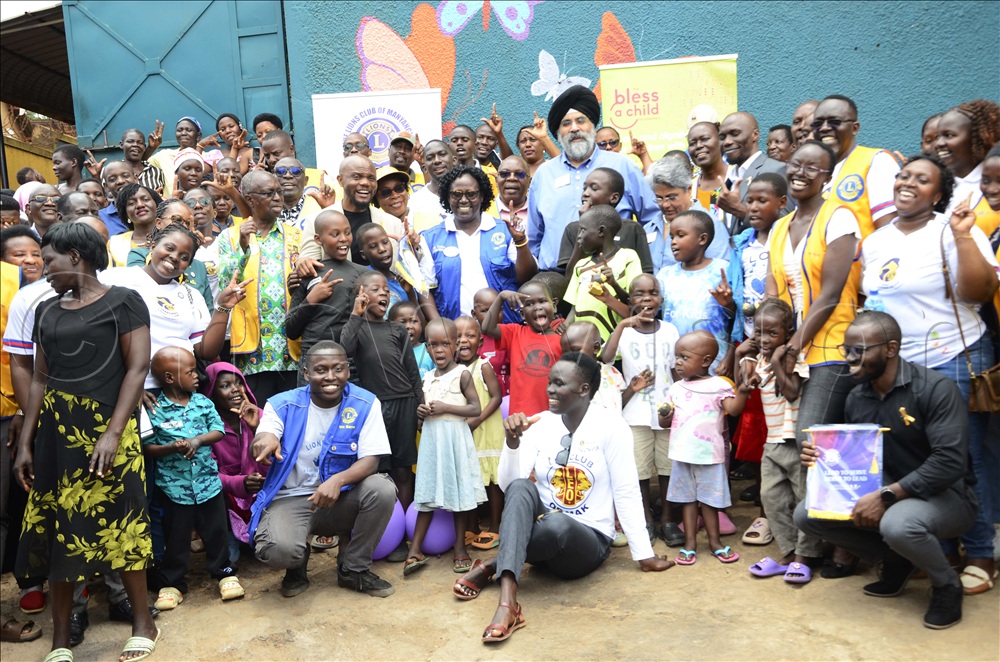'Malnutrition, cultural beliefs silently worsening childhood cancer'
For children battling cancer, experts say proper nutrition is crucial, as malnutrition can significantly worsen treatment outcomes.
Dr Jennifer Zungu Mugisha, Mulago National Referral Hospital Paediatric Hematologist addressing journalists during a press conference about paediatric cancer ward at Mulago National Referral Hospital on 23rd September 2025. (Photos by Juliet Kasirye)
By Juliet Kasirye
Journalists @New Vision
________________
Malnutrition, coupled with cultural beliefs, are silently worsening childhood cancers, paediatric experts have said.
For children battling cancer, experts say proper nutrition is crucial, as malnutrition can significantly worsen treatment outcomes.
“The worst enemy of cancer is malnutrition. When a child comes with malnutrition, it is very difficult to give them chemotherapy. By reducing chemotherapy, it implies that you are not giving them the adequate dose that might cure them as quickly as you want,” paediatric Haematologist at Mulago National Referral Hospital, Dr Jennifer Zungu Mugisha, says.
According to Zungu, malnutrition is caused by the cancer itself, and it becomes a very big hindrance to treatment.
Zungu further discloses: “The other challenge in treating cancer in children is that we have our cultural beliefs around us. So many people, when a child is diagnosed with cancer, there are very high chances that if we don't give good diagnostic talks, if we don't convince this patient or parent well enough, they are likely to abandon the treatment.”
Even with the best conviction, Zungu says, unfortunately, you find that most children are taken away to receive alternative medicine, which would be okay, but then at times they abandon treatment completely, and come back when they have chemoresistance.
Zungu says, chemoresistance means that the chemotherapy that you once gave is no longer working because of certain mechanisms in the body that have made the disease learn to dodge the medicine.
She made the remarks during the press conference about the paediatric cancer ward supported by Lions Clubs International Foundation (LCIF) held at Mulago National Referral Hospital on Tuesday, September 23, 2025.
Lions Clubs International President A.P. Singh arrived in Uganda on Monday and was accompanied by Past International Director Sangeeta Jatia.
A.P Singh, Lion’s International President, Sangeeta Jatia, Past International Director, Tush Naturinda, district governor of district 411B, John Bosco Ntangaare, District Lions Clubs International Foundation Coordinator pose for a photo with children suffering from cancer and other Lion club members during a meeting at Bless a Child Foundation in Bwaise on 23rd September 2025. 
During his stay in Uganda, Singh visited humanitarian projects supported by LCIF and also advanced Mission 1.5, the global initiative to grow service and membership.
Some of the life changing projects Singh visited include, Childhood Cancer Project at Mulago National Referral Hospital, Comprehensive Eye Care Project at Nsambya Hospital and also donated a vehicle that will enable expanded outreach to children undergoing treatment at Bless a Child Foundation.
Cancer treatment
During the meeting, Zungu also expressed concern about the cost of cancer drugs, saying they are too expensive to be afforded by low-income earners.
“It is very expensive to buy these drugs for children with cancer. One cycle, when we were calculating, we realised that most of the cycles of chemotherapy, just one cycle, might go for about $200 or more, and that is among the cheap ones,” Zungu said.
According to Zungu, there are some where a single drug costs $750,000 (over shillings 2.6 billion). It is a drug called rituximab that treats children with bucket lymphoma. A vial, just one vial, is $750,000. If you give this child two cycles, and then the mother runs away with the child, by the time they come back, the child is very sick and dies.”
Since cancer among children is cured if diagnosed early, Zungu called upon all stakeholders to raise awareness and convince Ugandans that if children receive the rightful treatment, including chemotherapy, the targeted treatment will heal.
According to experts, childhood cancers present symptoms similar to those of malaria, typhoid, gastroenteritis and other diseases, leading to late diagnosis.
However, collaborations with organisations such as LCIF have enabled Mulago to build treatment infrastructure. Currently, Mulago is treating children battling cancer, and they are getting cured.
Since the programme started, Zungu said: “We have had 1,800 children diagnosed and treated of childhood cancer, and of these 600 have finished treatment, and of those, more than 90% are in remission. Therefore, childhood cancer is treatable when diagnosed early.”
Regarding the Paediatric cancer project, President Singh said, Through the global Hope partnership along with LCIF, they have supported the treatment of the young children who have been impacted by cancer.
“We do understand that the world is battling to find a permanent solution and a cure to this disease, but at various stages, it is manageable. It needs a change in lifestyle; it needs support and intense treatment from time to time,” Singh stated.
The district governor of district 411B, Tush Naturinda said that where a Lion is serving with compassion, kindness and dedication, they can accomplish many things.
“Lions are different because we do what we are passionate about, and we join Lionism willingly to give and to serve humanity, which is our core. We are compassionate about what we do, and that is what makes us stand different from other things that others do in the communities,” explained Naturinda.
Naturinda said, in Uganda, they have so many projects supported by LCIF, including a community primary school in Kabale, diabetes awareness screening and treatment in Teso region, $419,000 (about shillings 1.4 billion) comprehensive eye care unit in the West Nile region, among others.
